
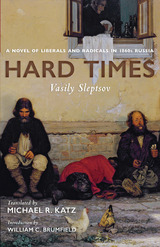
The novella Hard Times is considered Sleptsov’s most important work. It focused popular attention on the radical and liberal movements through its fictional setting, where the characters contend with constantly evolving political and social dilemmas. Hard Times was immediately recognized as a vibrant and compelling depiction of prerevolutionary Russian intellectual society, full of lively debates about the possibilities of liberal reform or radical revolution that questioned the viability of a political system facing massive social problems.
This is the first English-language version of Hard Times, expertly and fluidly translated by Michael Katz. Highly readable, it provides important historical insights on the political and social climate of a volatile and transformative period in Russia history.



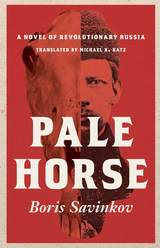

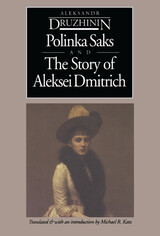
A far different tale, The Story of Aleksei Dmitrich is a complex social and psychological study of poverty, family disharmony, precocious children, and destructive self-sacrifice.

Set in Petersburg in 1857, on the eve of the great reforms that would include the emancipation of the serfs, Prologue expresses the author's hostility toward Russian liberals, their halfhearted attempts to alleviate the sufferings of peasants, and their insufficient support of revolution, while also exploring the obstacles in the path of women's social and personal development in the Victorian era. Michael R. Katz's new translation makes this singular work available to the non-Russian reading public for the first time.
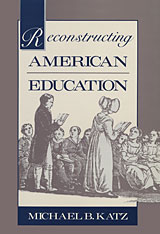
One of the leading historians of education in the United States here develops a powerful interpretation of the uses of history in educational reform and of the relations among democracy, education, and the capitalist state. Michael Katz discusses the reshaping of American education from three perspectives. First is the perspective of history: How did American education take shape? The second is that of reform: What can a historian say about recent criticisms and proposals for improvement? The third is that of historiography: What drives the politics of educational history? Katz shows how the reconstruction of America’s educational past can be used as a framework for thinking about current reform. Contemporary concepts such as public education, institutional structures such as the multiversity, and modern organizational forms such as bureaucracy all originated as solutions to problems of public policy. The petrifaction of these historical products—which are neither inevitable nor immutable—has become, Katz maintains, one of the mighty obstacles to change.
The book’s central questions are as much ethical and political as they are practical. How do we assess the relative importance of efficiency and responsiveness in educational institutions? Whom do we really want institutions to serve? Are we prepared to alter institutions and policies that contradict fundamental political principles? Why have some reform strategies consistently failed? On what models should institutions be based? Should schools and universities be further assimilated to the marketplace and the state? Katz’s iconoclastic treatment of these issues, vividly and clearly written, will be of interest to both specialists and general readers. Like his earlier classic, The Irony of Early School Reform (1968), this book will set a fresh agenda for debate in the field.

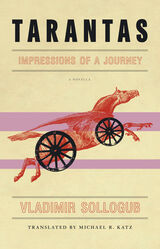
READERS
Browse our collection.
PUBLISHERS
See BiblioVault's publisher services.
STUDENT SERVICES
Files for college accessibility offices.
UChicago Accessibility Resources
home | accessibility | search | about | contact us
BiblioVault ® 2001 - 2024
The University of Chicago Press









